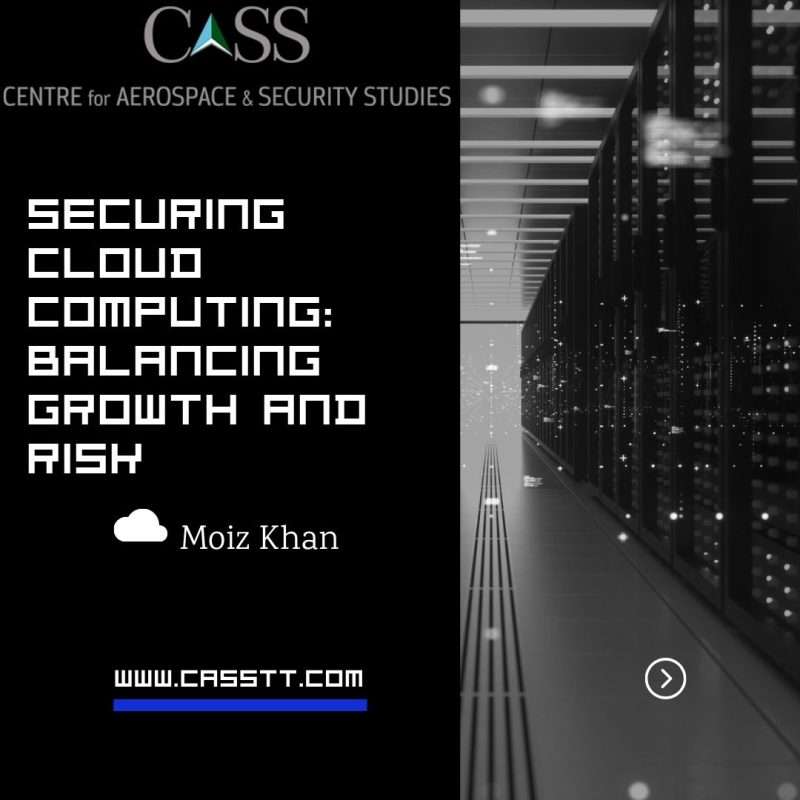Cloud computing refers to the accessibility of a wide range of ‘resources including applications, servers, data storage, development tools, and networking capabilities.’ These resources remain stored at off-site data centres managed by Cloud Service Providers (CSPs), allowing users to easily access them over the Internet without users needing them physically on their devices. It differs from the traditional computing by utilising third-party vendors’ remote data centres for scalable resources online. Additionally, it operates on a need-based payment, in contrast, the third parties require regular payment arrangements. The advantages of cloud computing include its cost-effectiveness, scalability, accessibility, and shared maintenance tasks. It is becoming increasingly prominent as a potent technology allowing individuals and organisations to optimise their performance, adaptability, and effectiveness.
Nevertheless, advancement in cloud computing is not without security risks that can undermine the integrity, confidentiality, and availability of data. Security threats have been emerging as a significant challenge to both CSPs and cloud users. The security threats to cloud computing are a cause for concern for the storage and processing of data in the Cloud. These risks have the potential to compromise data confidentiality, accuracy, and accessibility. Data leakage, Distributed Denial-of-Service (DDoS) attack, client-to-client attacks, malware infections, phishing attempts and data remanence are a few significant concerns. Additionally, insecure Application Programming Interface (APIs) create opportunities for unauthorised access and data manipulation by attackers. Inadequate resource management in cloud environments may lead to exploitation of resources, impacting performance and potentially creating opportunities for attackers to exploit vulnerabilities.
In this regard, security measures need to be coupled with advanced measures aimed at safeguarding the data. Security measures include regular data backups, Virtual Private Network usage for data encryption, network monitoring with tools like firewalls and intrusion detection systems, two-factor authentication for login security enhancement, and antivirus software downloads to help improve overall data and network security by mitigating potential threats. There is also need of implementing various protocols and frameworks ‘including identity and access management (IAM), role-based access control (RBAC), or attribute-based access control (ABAC)’ to regulate data access. Additionally, it is essential to secure interfaces and APIs through encryption and authentication methods. To enhance visibility into cloud usage patterns, Cloud Management Platforms, along with Cloud Access Security Brokers, should be utilised.
Moreover, virtualisation also serves to be effective for safeguarding cloud computing. Virtualisation helps entities to optimise their applications by creating a simulated or virtual machine (VM) that exist in software mode and operates with the physical machine. It offers improved resource allocation and stronger isolation of software resources. While virtualisation enables the sharing of physical resources among multiple tenants and ensuring a level of security and isolation that cannot be easily achieved, CSPs could be helped to evaluate and manage the security and risk aspects efficiently.
A stable and secure cloud computing could represents a paradigm shift in leveraging computing resources for multitude of benefits and economic growth. A study conducted by the London School of Economics and Political Science examined how cloud computing impacted various industries in the United States, the United Kingdom, Italy and Germany between 2010 and 2014. The findings revealed that cloud computing was not only enabling both sectors to innovate faster and reduce costs, but also helped in creating new jobs and skills. Moreover, the market for Public Cloud Services in the Asia-Pacific, excluding Japan (APeJ), is expected to experience substantial growth. It is projected that there will be a Compound Annual Growth Rate (CAGR) of 25.5% and could reach an estimated USD 124 billion by 2024.
Pakistan is also embracing cloud computing; and the field is gradually evolving. There are four CSPs locally including Jazz Garaj, Multinet, PTCL, and RapidCompute by Cybernet. Reports suggest that Pakistan’s cloud computing market is projected to reach USD 1.5 billion this year, exhibiting a CAGR of 19.1% from 2017. The government has taken some positive steps to promote cloud adoption, such as launching the Pakistan Cloud First Policy (PCFP) in 2022, which aims to provide a framework and guidelines for public sector entities to use cloud services in a secure, efficient and cost-effective manner. The creation of digital ecosystem will also complement the emerging technologies which remain inevitable for indigenous industrialisation.
However, Pakistan’s cloud computing infrastructure will not be immune from cyber security threats. While adopting numerous security measures for securing the technology and data, Pakistan needs to introduce specific regulations and compliance standards for CSPs to ensure data privacy and security. Such regulations can include data protection laws, encryption standards, and guidelines for incident response and reporting. Clear regulatory frameworks will encourage cloud providers to prioritise security and protect user data. Hence, strengthening the security, integrity and confidentiality of data would not only help in expanding domestic cloud services but also remain significant for digitalisation and economic growth.
Moiz Khan is a Research Assistant at the Centre for Aerospace & Security Studies (CASS), Islamabad, Pakistan. He can be reached at cass.thinkers@casstt.com
Design Credit: Mysha Dua Salman




